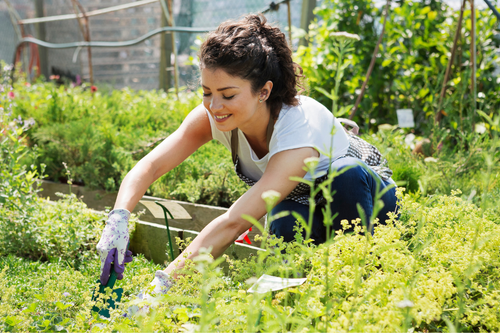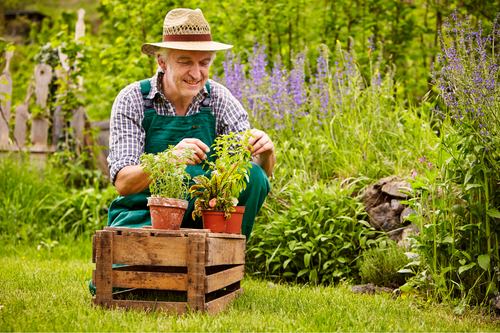Gardening is both an art and a science and, according to the Encylopedia Brittanica:
“Gardening can be considered both as an art, concerned with arranging plants harmoniously in their surroundings and as a science, encompassing the principles and techniques of plant cultivation.”
And it goes on to say: “The instinct and even enthusiasm for gardening thus appear to arise from some primitive response to nature, engendering a wish to produce growth and harmony in a creative partnership with it.”
And: “…many find it a relaxing and therapeutic pursuit. It is not surprising that the garden, accorded respect as a part of nature and a place of contemplation, holds a special place in the spiritual life of many.”

I’m interested in the creative, mindful, and spiritual aspects of gardening. Gardening nourishes the soul, expresses your creativity, and encourages mindfulness and living in the moment. I feel strongly that we should consider our gardening activities as a part of our creativity and mindfulness practices, whether you are gardening with fruit and vegetables or flowers or other plants. And regardless of whether you are gardening for pure bliss and enjoyment or as an act of self-reliance and survival to grow your own food or both. It also doesn’t matter whether you are planting directly into the ground or container gardening. It all counts and is therapeutic.
There is something about having our hands in the soil, the earth, and direct contact with Mother Nature that nourishes the soul. As we tend to take care of and water plants, we are nurturing not only them but also ourselves.
In our gardens, we are able to express our creativity. Not just in the design of the gardens, the placement of plants, and the size and shape of flowerbeds. But also in the very act of creating. We are in the process of planting seeds (or small plants) and then joyfully watching them grow into bigger plants. This creative act (which we, of course, don’t wholly take credit for as Mother Nature/planet Earth are responsible for it), helps to build our creative muscles and fulfills that need in us to create something beautiful, and living. Gardening also encourages other forms of creative expression as so many poems, plays, other writings, and visual art feature gardens or plants in them.
When we are weeding, and tending to our gardens in any way, often we seem to lose track of time. We are so fully living in the moment and not watching our clocks that I feel that gardening also encourages mindfulness and can be an important part of mindfulness practice. Just as some meditation techniques focus on meditation in movement such as walking meditations, I feel that gardening is also a type of a meditative act, or can be anyways.

The therapeutic benefits of gardening are legendary and have been written about extensively in many other places. At this point, it is well known that gardening can help with health issues such as depression and anxiety, and other issues. It can lift the spirits, give one hope, and teach one to enjoy life. If you garden alone or with others can also make a difference too. Some of us enjoy the solitude of gardening. Others love the opportunity to work in their gardens with their families, perhaps using that time to teach little ones valuable gardening skills, self-reliance, pass on inter-generational knowledge and build confidence.
We don’t all enjoy or have time for the same creative pursuits, and some of us may love drawing, painting, or sculpting in one part or time of our lives and then at other times of our lives may choose to focus on writing, acting, handcrafts, photography, woodworking, whatever the case may be, or yes, gardening. Gardening is one of the most universally loved and accessible art forms. Fully recognizing it for the important part that it can play in your creativity and mindfulness practice, daily routine, and/or spiritual life is a way to celebrate the role that gardening plays in your life and health.
To learn more about reconnecting with your inner essence and having a greater sense of well-being see: Meditations for New Beginnings








